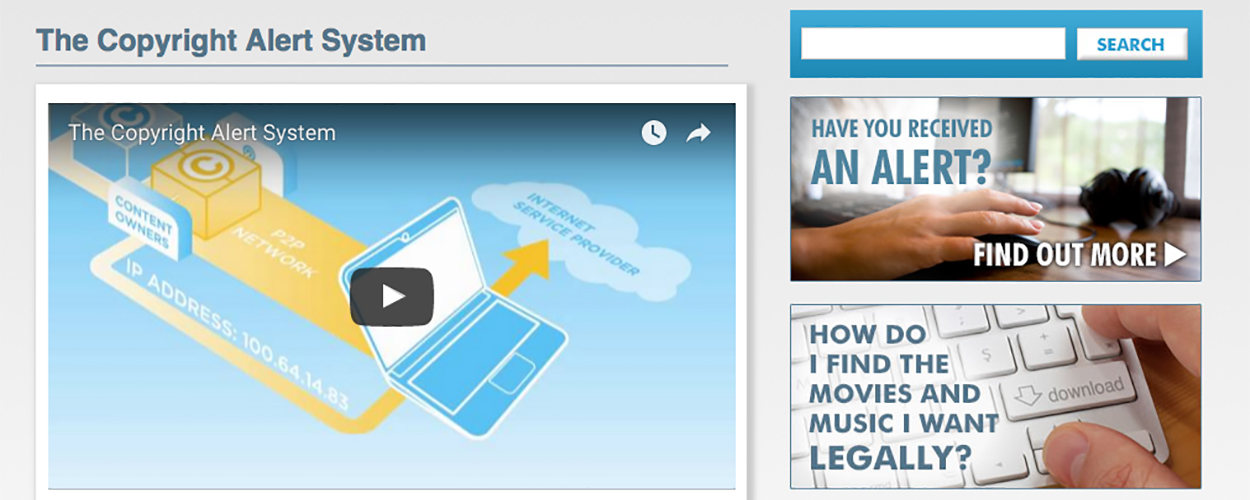This website uses cookies so that we can provide you with the best user experience possible. Cookie information is stored in your browser and performs functions such as recognising you when you return to our website and helping our team to understand which sections of the website you find most interesting and useful.
Business News Digital Legal Live Business
US industry continues to review six strikes
By Chris Cooke | Published on Wednesday 17 February 2016

The US music and film industries are continuing to work with the country’s internet service providers on a revamp of the Copyright Alert System, the voluntary anti-piracy programme via which ISPs commit to send warning letters to suspected file-sharers on behalf of copyright owners.
The system has been dubbed ‘six strikes’, because some sort of sanction is meant to take place after six warnings have been given (similar systems piloted in other countries were generally a more draconian ‘three strikes’).
The agreement that resulted in the Copyright Alert System expired last year, but has been extended a number of times while rights owners and net providers discuss revamping the programme. For the record companies and movie studios, that means ramping things up a bit, most rights owners reckoning that – while the CAS system is better than no system – the results of the anti-piracy initiative have been somewhat lacklustre.
According to Torrentfreak, the most recent renewal of the original agreement – while talks continue – only extended the current system to 22 Mar, which might suggest agreement is close on a new deal. Though a spokesman for the initiative was non-committal, saying that “while this extension is shorter than prior extensions, it is still a matter of routine business that will allow us to maintain the programme as we work together to refine the system”.
Some wonder whether last year’s court win by BMG against Cox Communications, the big US ISP not part of the Copyright Alert System, might have resulted in the rights owners being more bullish in negotiations with the other net firms, as that was a potentially landmark ruling that very much went in the music industry’s favour.
Hollywood is known to favour a web-blocking system over three-four-five-six strikes, that having become an anti-piracy tactic of choice elsewhere in the world. Though political challenges remain over that practice Stateside as everyone remembers the hoo and the haa that erupted around the SOPA and PIPA proposals in Congress four years ago, which had web-blocking at their heart.





